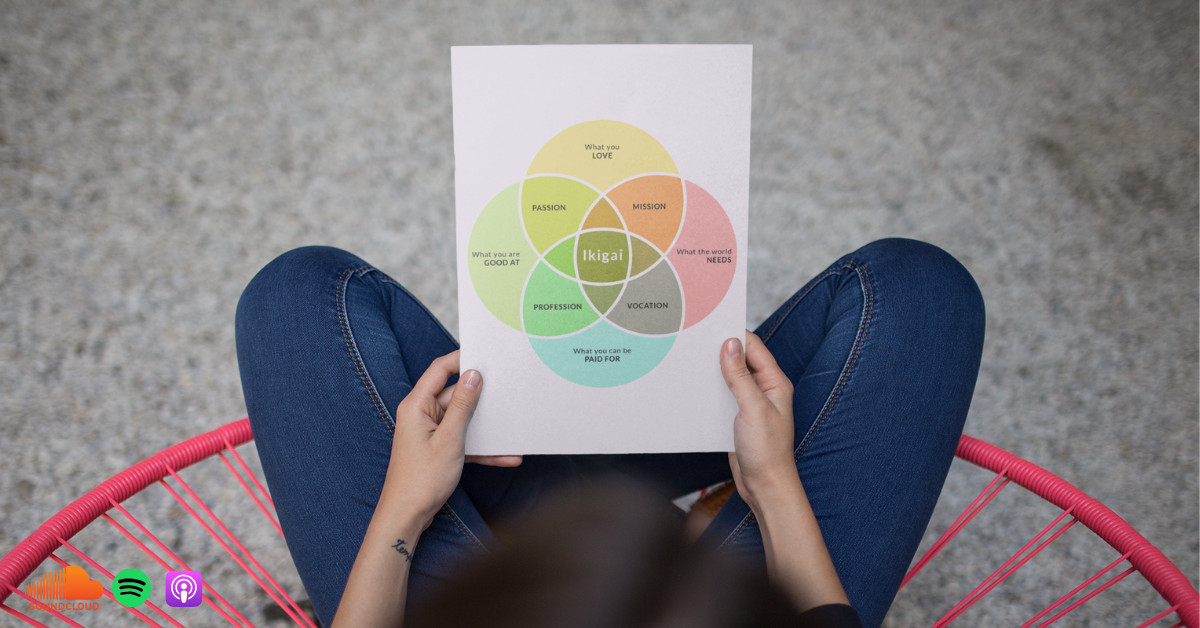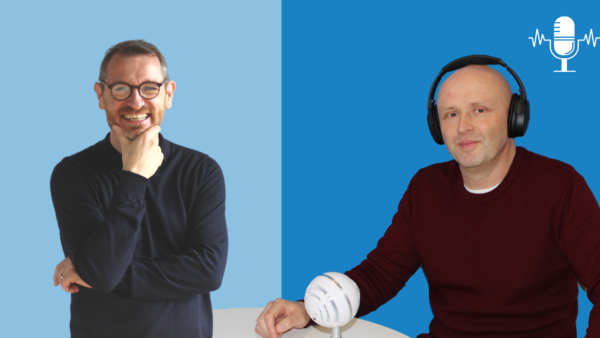Ikigai meaning
Ikigai is your raison d’etre, your reason to be, to get up in the morning, the thing that makes you not just jump for joy, but which is central to your purpose. Yes, the Japanese have it down and there are societies all over the world, living in so-called Blue Zones, where people live significantly longer than anywhere else in the world. And ikigai is seen to be one of the reasons for this.
Want to add 10 good quality years to your life, or at least tip the stats in your favour?
My blogs focus on the intersect between life and work and strengths and today’s really does cover all three! Like, literally, in the form of a diagram.

Ikigai
So first up, because I like evidence and think it’s important because otherwise you could just get sucked in to yet another faddish idea without a lot of substance behind it, let me give you some evidence for longevity and good health and well-being when you follow the principles of ikigai:
- You will reduce stress levels you experience
- You are less likely to suffer from cardiovascular diseases – a study of 43,000 Japanese adults demonstrated this
- You may well live longer – based on the same study as the heart disease one I just mentioned
- There’s moderate evidence that you are likely to experience less anxiety and a lower need for approval from others because of some good brain chemicals that kick in as a result of following the principles.
I want to give a word to the Blue Zones research I mentioned earlier by Dan Buettner which identified places in the world with a disproportionate number of people living beyond 100 years. Then I’ll focus on ikigai specifically. So the Blue Zones research found certain principles were followed in all the longest-lived parts of the planet so all of these are worth considering introducing, re-introducing, or keeping in your life, although you’ll have to apply them all to get ALL the benefits that people in these societies enjoy:
Move – but naturally: continue to nudge yourself to move without having to think about it
Purpose – this is ikigai which we’ll get into in a sec and it ensures people have a purpose, that continues long past retirement age and which transcends them
Downshift – or slow down, this could be stopping and breathing, remembering loved ones, meditating, but essentially is a method of slowing down and not continuing to live your life at breakneck speed
80% rule and eat more plants – so here the 80% rule means to stop eating when you’re 80% full, eat a largely plant-based diet and reduce your meat intake
Drink wine – people in the Blue Zone societies drink 1-2 glasses of wine a day typically with friends or family with no bingeing
Faith – (of whatever persuasion) appears to help increase life expectancy
Network – moving in social circles where members engage in healthy behaviours, for life!
How to find your Ikigai
Let’s move into the Blue Zone finding around purpose because that’s at the heart of ikigai. What you need to think about is the intersection of the following four things, and that will get you closer to your ikigai: What you love, what you’re good at, what the world needs and what you can get paid for.
What you love – so what is it that brings you joy, that wouldn’t feel like a job if you did it every day for the rest of your life? Something you loved doing when you were a child perhaps, as that was when you didn’t think or overthink, instead you just did. Another way of getting there is to consider when you have spare time, what you love love love to do.
What you’re good at – so this one is about skills and strengths…your skills are things you can do and your strengths are things that you enjoy doing – scoot over to www.strengthscope.com for a helpful list of strengths and google ‘work skills list’ for some ideas on skills. Think about what people come to you for at work (or outside of work), things you’re known for because you’re good at them or because you enjoy them.
What the world needs – this one will most likely get to your higher purpose rather than just things that you enjoy or are good at and we know that people experience all sorts of positive outcomes when engaged in something positive that is bigger than them. So to get to this, think about things in the world that upset you and where you feel a difference could be made – locally, or in society more broadly, or where you have a really strong, clear vision for an area where you could make a difference, which is kind of the positive version of the thing that upsets or angers you. Purpose isn’t easy to get to, it may take a while, it may change over time, and you might have to kiss a few frogs, but the journey’s worth the effort.
What you can get paid for – so realistically, you will need to get paid (possibly you won’t but most people will) so think really creatively about how you could find a job or profession or sell a product or service that relates to the other three areas – where could you achieve your purpose, do what you love AND do what you’re good at. Go broad not narrow initially to get possible thoughts down and only narrow down once you’ve exhausted all possibilities.
Once you have the answer, or possible answers, to each of these four areas, you’re going to be really close to finding your ikigai. So then chat with friends & family, discuss, reflect, go again until things start to become clearer for you.
And consider these extra descriptions of ikigai: “The process of allowing the self’s possibilities to blossom.” (this is supercool if you visualize the ikigai diagram as a flower blooming – sorry for the visuals, audiophiles, but check the blog this week you’ll see it there)
Last one – “ikigai is really like a treasure map. And, this treasure map can help you find your way to finding out wonderful things about yourself that you can share with the world, and the world will say ‘thank you’ for it.” This is from Tim Tamashiro’s TED Talk which is well worth looking up for a summary on the topic.
33.4M subscribers
How to Ikigai | Tim Tamashiro | TEDxYYC
Watch later
Share
<div class=”player-unavailable”><h1 class=”message”>An error occurred.</h1><div class=”submessage”><a href=”https://www.youtube.com/watch?v=pk-PcJS2QaU” target=”_blank”>Try watching this video on www.youtube.com</a>, or enable JavaScript if it is disabled in your browser.</div></div>
I’m going to leave it there, there is so so much to consider with this model but if you keep it present in your mind as an aspiration, and if you do the work to get serious in answering the questions and generate some possibilities as to where you could take your career and your life, I guarantee it will pay you back. My story attests to it, but that’s for another time. I know, I’m such a tease.
Good luck with giving it a go, and I hope you’ve enjoyed today’s blog. If so, please share – let’s get ikigai out there and mainstreamed so that more and more people can find joy and pleasure in every day of their lives for the rest of their lives.
If you enjoyed this, please check out my podcast on Soundcloud, Spotify, or Acast.











